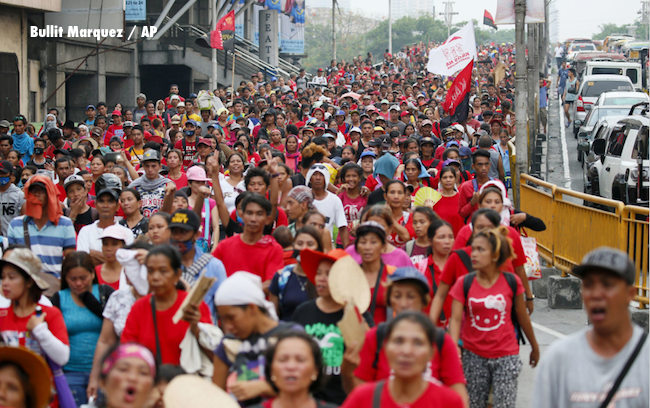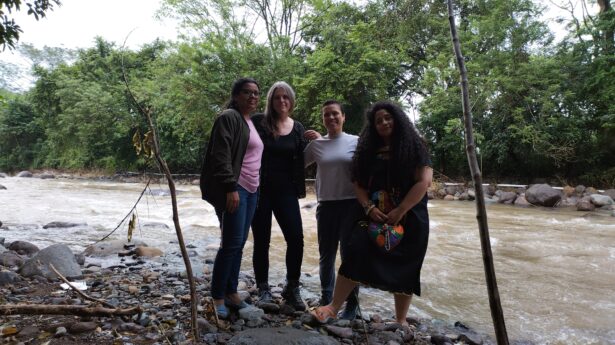The Unitarian Universalist Service Committee advances human rights through grassroots collaborations.
May 6, 2017, Rights Reading

By Shelly Koo on May 6, 2017
Our weekly roundup of what we’re reading: a few select articles from the front lines of human rights that we don’t want you to miss. This week’s Rights Readings covers immigration events, from an unjust deportation of a mother and her son to May Day protests around the world.
Senator Robert Casey Jr., a Democrat from Pennsylvania, pleaded with Twitter users to advocate against a mother and her five-year-old son’s imminent deportation that would likely lead to their death. After witnessing the murder of her family members in Honduras, the mother was being threatened and chased by gang members. She and her son fled to the United States seeking asylum, and they have been held at Berks County Detention Center for the past 18 months. Senator Casey, along with thousands of other Twitter users, tweeted at Department of Homeland Security (DHS), Immigrations and Customs Enforcement (ICE), and President Trump, pleading for this family. Despite the public uproar, the mother and her son were deported.
They are the first of 14 families who have been held at Berks long-term. The other families also come from Central America and face similar situations – they are seeking asylum here in the United States. Though Senator Casey was not able to stop this specific deportation, he has written letters to DHS, signed by 13 other senators, asking for the release of four other families currently being held at Berks.
UUSC has followed this case closely and continues to demand justice now for the mothers and children detained at Berks and for all vulnerable asylum seekers fighting for their rights. Read more here!

From Los Angeles to New York, Moscow to Manila, hundreds of thousands of people from all over the world rallied for May Day, or International Workers’ Day, to stand up for worker’s rights. The protests ranged from peaceful to forceful. In France, anti-riot police officers threw tear gas at youth who were targeting them with firebombs. In Los Angeles, pro- and anti-Trump supporters were separated by police tape. In many cities, whether protests were peaceful or violent, many were arrested as they marched. Thirty-one total cities all over the world are highlighted in this great photo-journalistic piece covering May Day events.
UUSC joined the May 1st coalition in Chelsea, Mass. Marching alongside other members of the faith community, unions, the Movement for Black lives and many others, staff joined the movement, protesting the criminalization of immigrants and communities of color, policies that threaten the planet, and economic inequality.
This year’s May Day was one of the biggest since 2006, largely in part because the Trump administration has focused so much energy on deportation and the border since the election. The immigrant movement has changed in multiple ways. The anti-immigrant movement has grown more militant, more intergenerational, and unapologetic, while the other side has become intersectional, increasing connections across racial and cultural ties, and LGBTQ groups, emphasizing opposition to over policing and criminalization. Grassroots movements are also focusing more on local organizing rather than focusing on federal legislation, which was more common 10 years ago.
Franco poses some important questions about next steps and strategies and how that will shape and effect this movement on both sides. Questions around exponentially increasing engagement, not just within the immigrant community, but with allies outside; how to highlight the impact immigrants have on our economy while still holding the importance of their humanity; the targets of the movement; and finally, how we ought to be approaching this as an intersectional movement.
Read more about the immigrant rights movement in the first of our three-part Expanded Sanctuary blog series.

